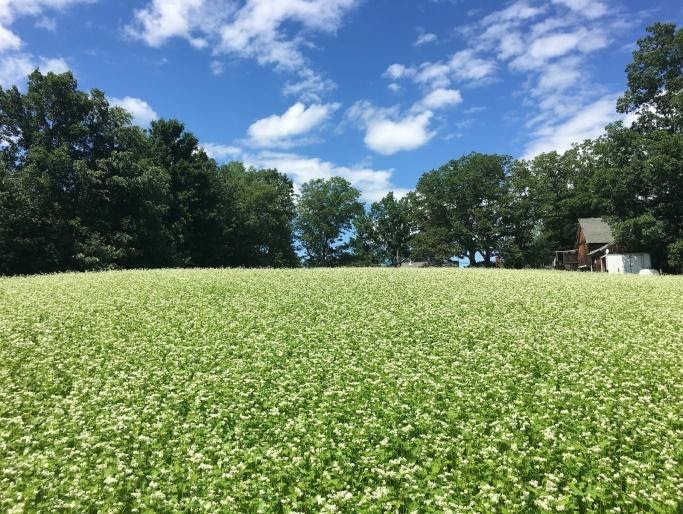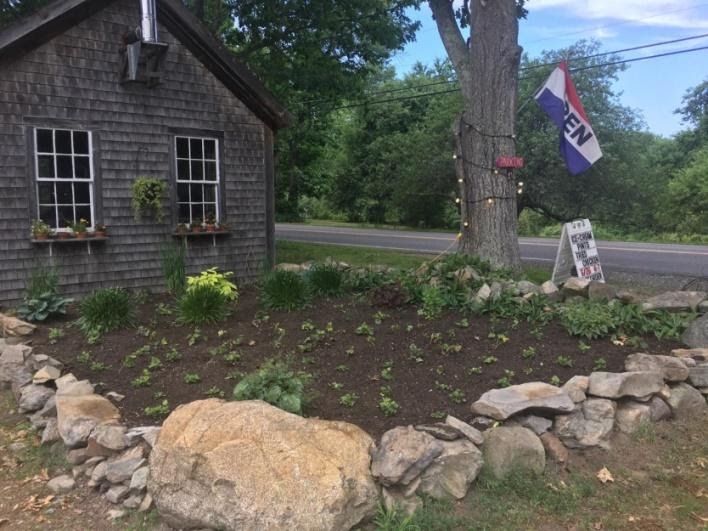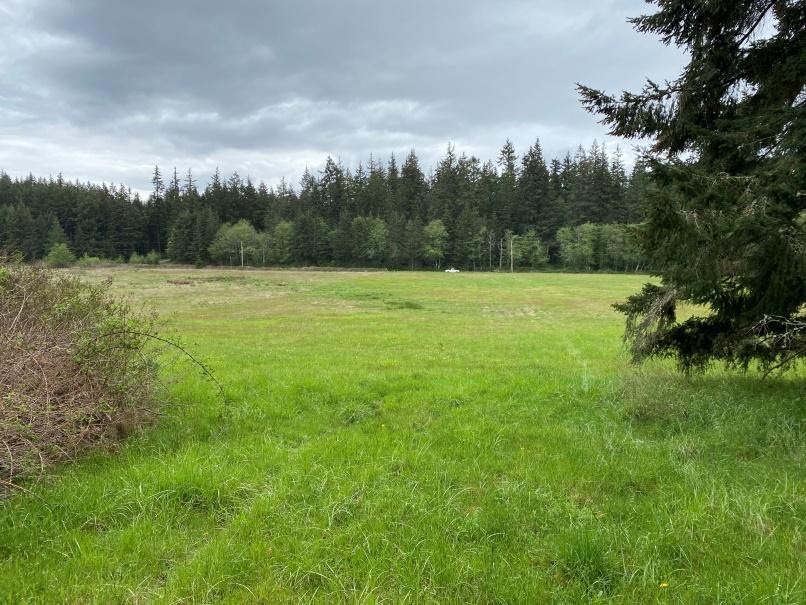
Funding provides a rich example of how Regenerative Agriculture works by creating a balanced habitat that benefits both the farm and the environment.

Agrarian Trust and Patagonia* are both investing to support ecological stewardship on two Agrarian Commons farms. Vernon Family Farms of Newfields, New Hampshire and Gardner Farm of Whidbey Island, WA have received funds to implement professionally designed and developed pollinator habitats on their farmland.
Vernon Family Farm is a founding farm of the New Hampshire Agrarian Commons. Operated by Jeremiah and Nicole Vernon, they will be implementing a pollinator habitat enhancement plan under the guidance of Jarrod Fowler, horticulturist, entomologist and conservationist who is also a noted authority in native pollen specialist bees. The Vernons are preparing to plant hedgerows, meadows, and pastures composed of New Hampshire native wildflowers, shrubs, and grasses. Preparations are being performed with herbicide-free methods such as sheet mulching and smother cropping with buckwheat (pictured).

The New Hampshire project began with intensive assessments of existing site conditions, including local climate, soils, plant communities, and pollinator habitat features. Evaluations of existing conditions helped prioritize conservation practices that will feed and shelter pollinators, while meeting the goals of Vernon Family Farm: enhanced habitat for wildlife, increased foliage, flowers, and fruits for harvest, and a beautified farmscape for the public. The project is being prepared throughout the summer of 2020 and will be installed during the fall of 2020 and spring of 2021.
Gardner Farm is a founding farm of the Puget Sound Washington Agrarian Commons. Previously operated by Caroline Gardner, the farm is in a period of succession and is seeking new ownership. Eric Lee-Mäder of Northwest Meadowscapes, LLC will be implementing a meadow restoration project. This restoration project includes native prairie enhancement and management, overall mowing management to enhance pollinators and suppress weeds/grasses, brush management and orchard preparation and installation. The orchard installation is a sizable project, deemed to be “the mother orchard of the Commons.”

The Washington project is highly involved, beginning with a site evaluation. This consists of fact checking USDA soils tests, performing hydrology tests and topography studies, measuring o-level soil horizons (the amount of surface thatch and biomass) and weed pressure, and inspecting existing plant community composition. These assessments will paint a complete picture of the landscape which then leads to the creation of a feasibility plan followed by a high-level site preparation plan. The project will be installed in the fall and winter of 2020.
More about pollinator habitats
Creating a pollinator habitat requires planning, thought, and a great deal of technical knowledge. Specific pollinator species and specific plant species are needed to create an ecology that best supports the habitat. To learn more about the specific pollinator species and their range of behaviors and habitat needs, we invite you to watch this video from the Ecological Landscape Alliance (ELA).
*The Donner Foundation is an additional funder of the Vernon Family Farm project.


